

Pontiff: Christmas a Feast of Restored Creation
 The Pope before the Crib within the Vatican basilica, above and the Infant Christ being carried in procession before the Midnight Mass, below.
The Pope before the Crib within the Vatican basilica, above and the Infant Christ being carried in procession before the Midnight Mass, below.
VATICAN CITY, DEC. 24, 2007 (Zenit.org).- Using an image from St. Gregory of Nyssa, Benedict XVI said today that the stable in Bethlehem represents our "ill-treated world," polluted especially due to the abuse of energy and its exploitation.During his homily at Christmas Midnight Mass in St. Peter's Basilica, the Pope spoke of St. Gregory of Nyssa's interpretation of the stable in which Christ was born.
The Holy Father referred to John 1:14 -- "He pitched his tent among us" -- and commented: "Gregory applies this passage about the tent to the tent of our body, which has become worn out and weak, exposed everywhere to pain and suffering. And he applies it to the whole universe, torn and disfigured by sin. What would he say if he could see the state of the world today, through the abuse of energy and its selfish and reckless exploitation?
 "Thus, according to Gregory's vision, the stable in the Christmas message represents the ill-treated world. What Christ rebuilds is no ordinary palace. He came to restore beauty and dignity to creation, to the universe: This is what began at Christmas and makes the angels rejoice. The earth is restored to good order by virtue of the fact that it is opened up to God, it obtains its true light anew, and in the harmony between human will and divine will, in the unification of height and depth, it regains its beauty and dignity. Thus Christmas is a feast of restored creation."
"Thus, according to Gregory's vision, the stable in the Christmas message represents the ill-treated world. What Christ rebuilds is no ordinary palace. He came to restore beauty and dignity to creation, to the universe: This is what began at Christmas and makes the angels rejoice. The earth is restored to good order by virtue of the fact that it is opened up to God, it obtains its true light anew, and in the harmony between human will and divine will, in the unification of height and depth, it regains its beauty and dignity. Thus Christmas is a feast of restored creation."
Benedict XVI reflected on the words from the Gospel describing the birth of Christ: "These words touch our heart every time we hear them."
"This was the moment that Israel had been awaiting for centuries, through many dark hours," he affirmed, "the moment that all mankind was somehow awaiting, in terms as yet ill-defined: when God would take care of us, when he would step outside his concealment, when the world would be saved and God would renew all things."
The Holy Father focused on the anticipation with which Mary awaited her Child.
"We can imagine the kind of interior preparation, the kind of love with which Mary approached that hour," he said. "The brief phrase: 'She wrapped him in swaddling clothes' allows us to glimpse something of the holy joy and the silent zeal of that preparation. The swaddling clothes were ready, so that the child could be given a fitting welcome."
"Yet," the Pope lamented, "there is no room at the inn. In some way, mankind is awaiting God, waiting for him to draw near. But when the moment comes, there is no room for him.
"Man is so preoccupied with himself, he has such urgent need of all the space and all the time for his own things, that nothing remains for others -- for his neighbor, for the poor, for God. And the richer men become, the more they fill up all the space by themselves. And the less room there is for others."
Rejection
The Pontiff said St. John the Evangelist's phrase, "He came to his own home, and his own people received him not," represents various groups of people.
He explained: "This refers first and foremost to Bethlehem: The Son of David comes to his own city, but has to be born in a stable, because there is no room for him at the inn. Then it refers to Israel: The one who is sent comes among his own, but they do not want him. And truly, it refers to all mankind: He through whom the world was made, the primordial Creator-Word, enters into the world, but he is not listened to, he is not received.
"These words refer ultimately to us, to each individual and to society as a whole. [...] Does he find room in us, or have we occupied all the available space in our thoughts, our actions, our lives for ourselves?"
A space
Benedict XVI expressed his gratitude that not everyone rejected Christ.
He said: "There are those who receive him, and thus, beginning with the stable, with the outside, there grows silently the new house, the new city, the new world. The message of Christmas makes us recognize the darkness of a closed world, and thereby no doubt illustrates a reality that we see daily.
"Yet it also tells us that God does not allow himself to be shut out. He finds a space, even if it means entering through the stable; there are people who see his light and pass it on. Through the word of the Gospel, the angel also speaks to us, and in the sacred liturgy the light of the Redeemer enters our lives.
"Whether we are shepherds or 'wise men' -- the light and its message call us to set out, to leave the narrow circle of our desires and interests, to go out to meet the Lord and worship him. We worship him by opening the world to truth, to good, to Christ, to the service of those who are marginalized and in whom he awaits us."
![[Unam Sanctam]](https://blogger.googleusercontent.com/img/b/R29vZ2xl/AVvXsEiymQ2adTjpZ1ABhPBbBBquiPCxeQrc4Jy_97vOikT0wGQeJleriiXQy6ebnb0jrYe-TfvcK77txStB4aIwVAdD41ZdMkVfNtFGC0JX6LBV9B8mfeRZaIAM7Sj-011ag3DiKQzv/s1600/headerdivinemercy.jpg)






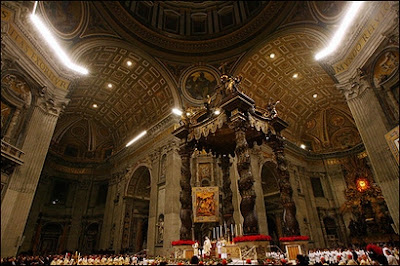














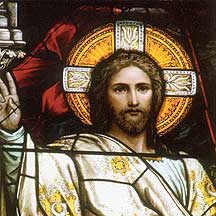







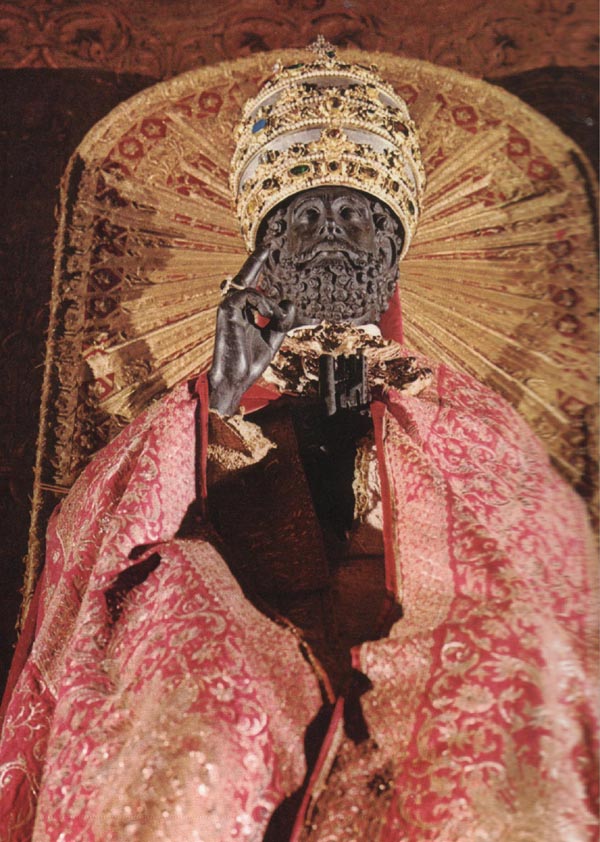
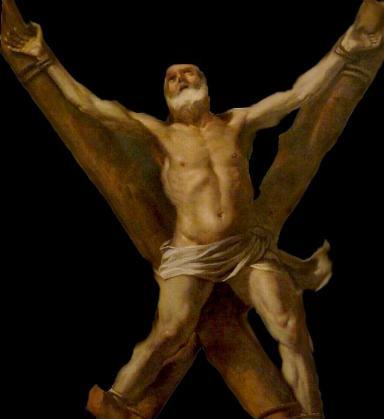




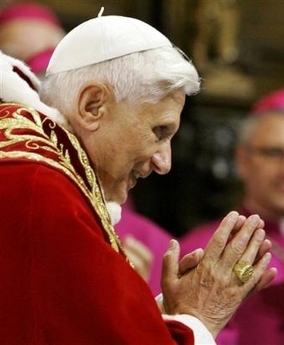






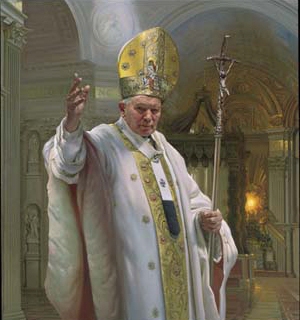
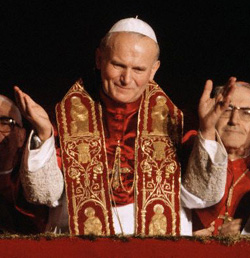
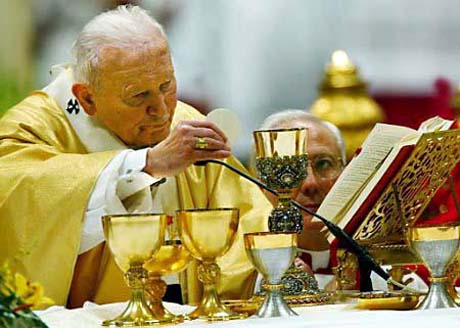







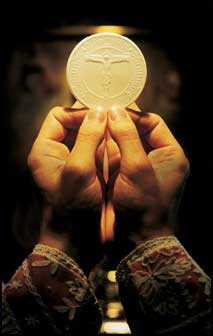
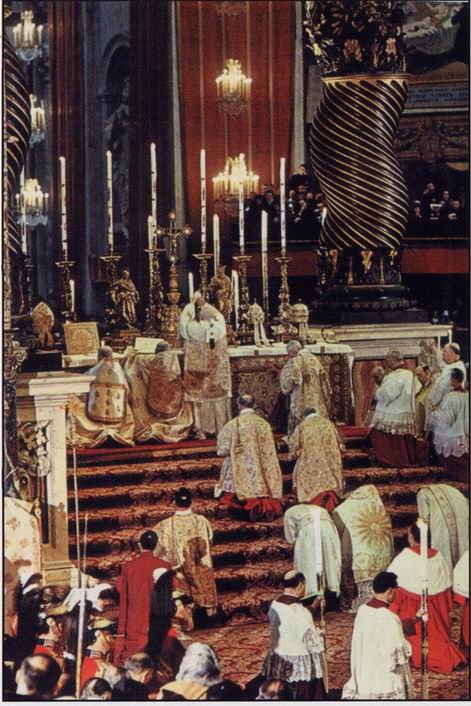

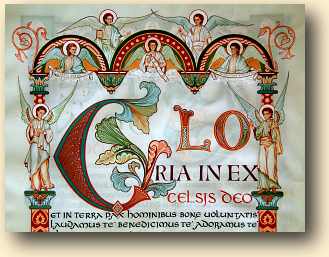

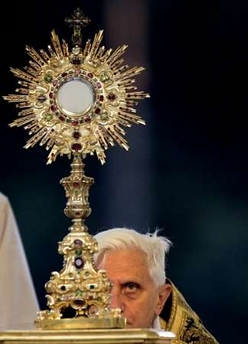


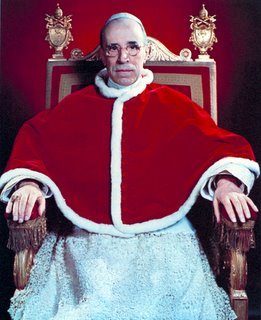




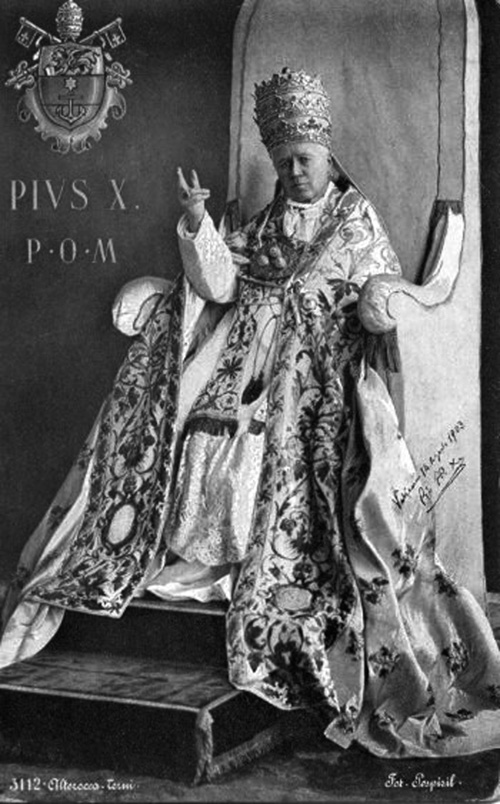



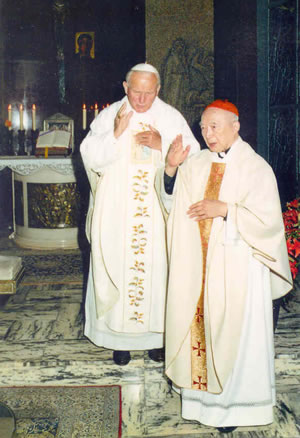






No comments:
Post a Comment